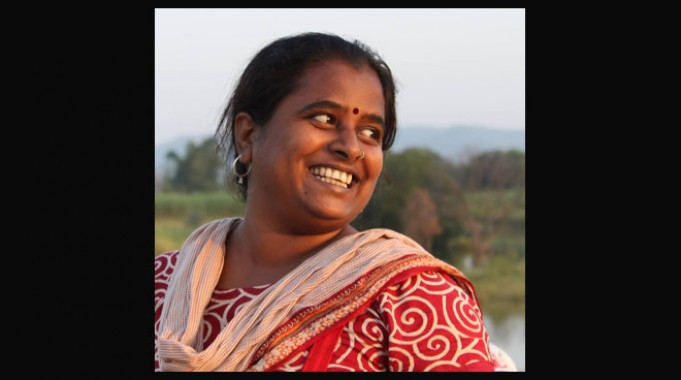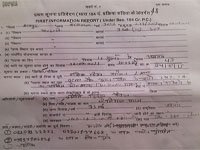Stalking the messenger
On September 14, Kavita, a Dalit editor at Khabar Lahariya (News Wave), a rural collective of women journalists in Uttar Pradesh (UP), published a hair-raising account in the online magazine, The Ladies Finger, of phone stalking experienced by her team of reporters in Banda and Chitrakoot districts since January. The team was subjected to lewd harassment, threats of violence, and even had their phone SIMs illegally locked by the stalker, who called himself Nishu. Their despair was compounded by the conduct of the UP police – a senior official refused to treat the complaint with respect and urgency; his juniors told Kavita to get the men in her house to abuse the stalker when he called, as a way of dealing with the harassment.
Khabar Lahariya, an 8-page multilingual weekly, specialises in closely-narrated on-the-ground reportage about rural lives and the state in the Bundelkhand region. Its reporters go to areas where few Indian journalists go, and write about, and for, an under-served rural audience in about 600 villages of UP and Bihar. The Banda-based Kavita, like the rest of the team, is gritty, self-made and has overcome numerous personal hurdles to work as a journalist. She and her team have won multiple awards for their reportage, which ranges from investigations on rural development funds and social security schemes, to tracking gender violence and the region’s dacoits.
Q: In your account you write, “How can I describe how he broke us? Us journalists who thought we’d made something of ourselves.”
Growing up in rural Chitrakoot, the kind of things we were told were, “Why should a girl study? Is she going to be a DM or Collector?” I am the first person from my family to get an education – I fought and started studying at age 12 or 13, when the Mahila Samakhya program came to our area. Through the years, I have worked and financed my own studies alongside, and now have a Masters degree. I was part of the founding team of Khabar Lahariya in 2002, and work as an editor with a team of 25 women reporters in 4 districts to produce and distribute our paper. I also go out and report. We were deep in our production work when the calls started coming on January 8, and then kept continuing. We are out reporting on a sad incident unfolding in the village, and the calls are coming. Calls in the evening, in the middle of the night. From so many numbers. What do we do? How do we find an escape from this? It really affected us.
Q: There was no real police action from January to September. Then, within days of your account being published on the 14th, the police said they have arrested the man who was harassing your team. What has happened since?
After we published our account, there was pressure from the media and the public, which made the CM intervene. Magically, everyone from the SP to the Kotwal to the DIG to the IG to the Women’s Thana wanted to talk to us, and get our statement. On the morning of 16th September, the police called us and said we have arrested Nishu, and we should come to the police station. 3 of us finally went there in the afternoon. Without giving us any prior notice, they put a young man in front of us. I felt extremely upset at the police for doing this. But also my months-long anger at this man was boiling over, and I could not help asking this young man, Nishu, “Why were you harassing us for so many months? What enmity did you have against us? What had we ever done to you?” He instead started accusing us of calling and texting him, and of harassing him. He even went to the extent of saying, “I hadn’t caused you any trouble earlier, but now, I will do it.” We were shocked that he could speak like this to us in the presence of the police. And they merely told him, “Arey beta, shaant raho.” (Calm down, my boy)
Q: That is chilling. So despite the arrest, your challenges with this case continue.
Well the calls have stopped certainly, but the bravado with which he could threaten us despite being under arrest and being in a police station, makes us wonder what backlash we might face. In our years of reporting here, we have seen umpteen instances of how corrupt the systems are, and how the police do saudabaazi, and falsify complaints of rape, dowry, harassment. I worry if that might happen here too. We asked the police who is this man, and why was he harassing us. They said, “Oh, he is just a sadakchhap (vagabond).” But then how did he get the resources to have 40 sim cards, and the ability to get our Vodafone numbers blocked repeatedly?
Q: Have your families supported you in filing the complaints?
They also got very scared in the past months. My husband has told me to not to create enemies, not to pursue the complaint saying he fears what might come out of it, given that I go out every day. When my team and I go out to report, we do wonder if we will come back safe. This case has become high-profile. We mostly work in rural, jungle, areas, and there are times when we walk for 10-12 kilometres, all by ourselves, to collect news. I feel scared, but then I also don’t feel scared. Through the last few days, we have got so much support from other people and the media, that I feel empowered, and part of a larger community. I know that what is wrong must be opposed, and so we are doing that.
Q: You and your team are an old hand at chronicling gender issues, and violence against women, but have these past months highlighted anything additionally.
When we first went to the police, within 3-4 days of the calls coming, we thought they know us and our work, and hence I had faith that they will treat the matter with seriousness. But as days rolled on, we found that there was no investigation and on the other hand, they are deriving enjoyment out of our case. When we asked the SP last week, why there was no action for 9 months, and then an arrest within days, he admitted that pressure from the top pushed them into investigating the case seriously. If we were subjected to so much, can you imagine what happens when a common Dalit or Adivasi woman or villager who has no reach, approaches the police?
Related Link: The Khabar Lahariya Story








